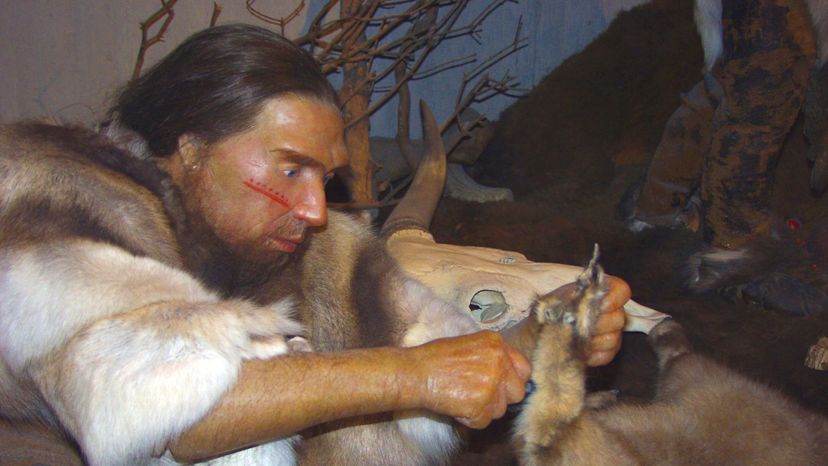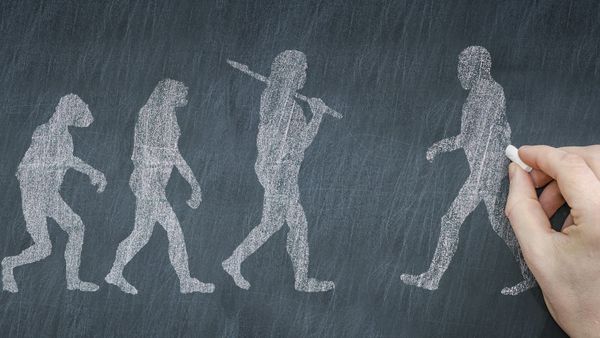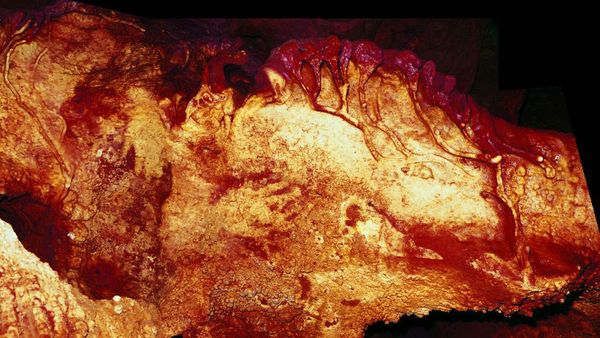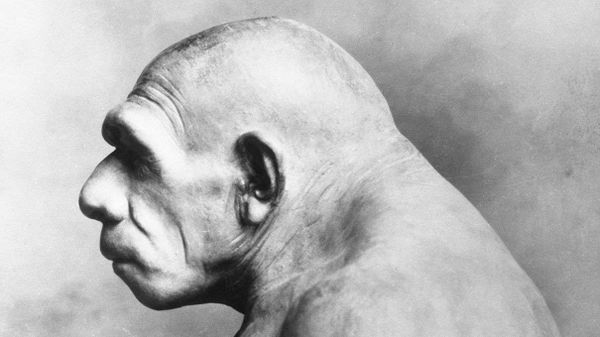
For millennia, humans and Neanderthals coexisted in Europe and Eurasia — you've probably heard about it, because apparently they had sex and now you might have around 2 percent Neanderthal DNA in your genome. It's a whole thing. So, we know there might have been some Neanderthal-modern human romance, but did they have any laughs together, you think? Well, that mostly depends on whether Neanderthals could laugh.
It's a tricky question, though, because what would Neanderthals have laughed at? We modern humans laugh at all sorts of things: Depending on who you are, it's equally possible to guffaw at kittens playing as it is to giggle over a pun about chemical engineering, if that's what you're into. We know less about Neanderthal theory of mind than we do our own, but there's evidence that the idea that they were intellectually inferior to modern humans is bogus. And though we don't rightly know what would have tickled them, research on the evolution of laughter supports the idea that Neanderthals were most likely heir to a glorious legacy of chuckles.
Advertisement
Other great apes laugh — in fact, laughter in our phylogenetic corner of the world is estimated to have evolved between 10 and 16 million years ago. Spontaneous laughter is something we all do within the first couple months of life — even in babies born deaf or blind. The main goal of laughter seems to be to create and maintain social bonds. We known Neanderthals lived in small family groups, so although they might not have needed to have the social smarts to yuck it up at the nightclub, given their lifestyle, laughter probably would have been beneficial to them, just as it is to a chimpanzee.
But a lot goes into laughter, and the question of whether or not Neanderthals could laugh has two parts, the first having to do with the ability of the Neanderthal voice to produce the sound, and the second with whether or not they had the cognitive ability to find things funny.
According to Dr. Philip Lieberman, professor emeritus in the Department of Cognitive, Linguistic & Psychological Sciences at Brown College, Neanderthals definitely had all the vocal equipment required to laugh.
Neanderthals had a vocal set up very similar to humans — a larynx, or voicebox, supported by a delicate, horseshoe-shaped bone called the hyoid.
"The larynx produces acoustic energy that causes the vocal cords of the larynx to open and close, and the supralaryngeal vocal tract — the space between the lips and the larynx — changes shape with movement in the lips, tongue and jaw to make a kind of malleable organ pipe that helps us make vowel and consonant sounds," says Lieberman.
We share all this vocal equipment with Neanderthals, so it stands to reason that their laugh would be similar to our own — the only difference of opinion among researchers here centers around whether the Neanderthal speaking voice was lower or higher than that of a modern human.
So, now the big question is whether Neanderthals had the ability to find things funny enough to laugh at them.
According to Lieberman and some recent research, it's very likely:
"Epigentic evidence now shows that Neanderthal brains could execute complex motor acts," says Lieberman. "That means Neanderthals could talk and had language as long as their brains could control the complex gestures that human speech entails. They definitely could have laughed."
Advertisement


